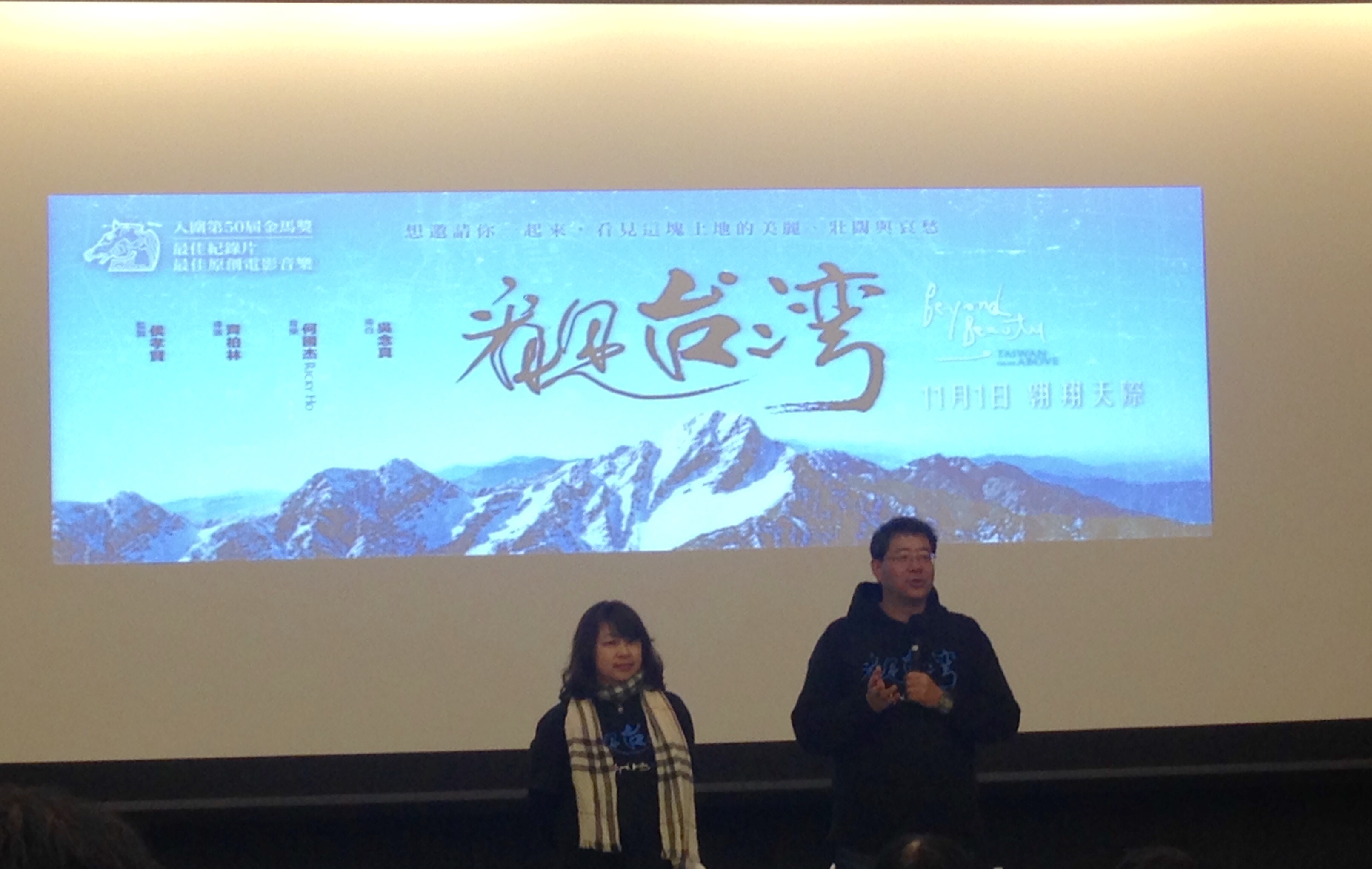Harvard University Screening of “Beyond Beauty: Taiwan From Above” Highlights Environmental Protection Issues in Taiwan

Chi Po-Lin spent five years and NT$90 million (almost US$3 million) on this spectacular project to call attention to Taiwan’s natural environment, and to raise environmental protection awareness in Taiwan society. The film shows the devastating consequences of human activities, such as building towering housing complexes on hillsides, sprawling tourism hotels at Cingjing Farm, a popular tourism spot in the middle of Taiwan, and numerous cement material exploitation spots in the mountains of Taiwan. These led to massive destructive landslides during typhoons which struck Taiwan in the past decade or so, such as Typhoon Morakot in 2009 that cost many lives.
The film also shows the “orange river” in Kaohsiung. Its water is seriously polluted by a chemical factory, and this in turn pollutes the soil, and then the crops that people plant and eat. It shows how the beautiful ocean coastline is facing erosion due to expanding beachside infrastructure and it also highlights the rapid land subsidence that causes serious flooding in southwestern Taiwan.
The film shocks audiences with its graphic pictures and stark warnings, but it ends with the sound of beautiful voices of aboriginal children atop Yushan (Jade Mountain) in Taiwan singing, as the message “Let us work together to make our home a better place” appears across the screen. This aptly reflects Chi’s sincere hopes that we can protect the environment.
After the screening, Chi shared his thoughts about the filming process and the difficulties. Viewers in Boston share his concerns: during the Q&A session they mentioned the Kuokuang Petrochemical Project in Taiwan as another critical environmental issue, and they expressed their interest and pride in the film. Chi also told them about the heart-touching feedback received from viewers around the world after the film’s success and that he plans to film in a broader geographical area for his next film: in mainland China and Taiwan’s neighboring countries, including Japan. They showed their appreciation with a huge round of applause for the director, the producer, and the film at the end of the workshop.
